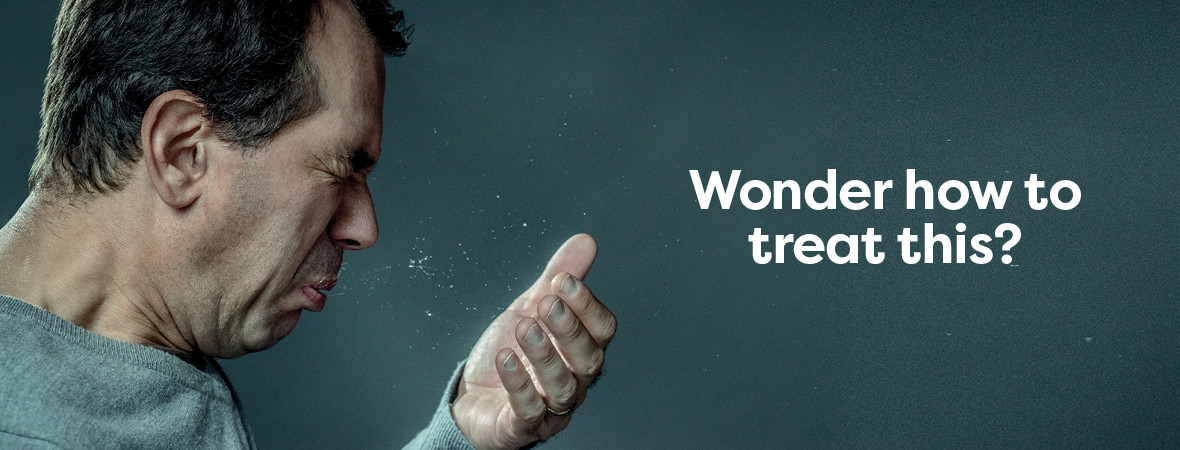Hayfever: Springs unwelcome sidekick

Hay fever is a common term referring to allergic rhinitis. It is an allergic reaction to allergens or triggers when breathed in via the nose, causing an immune response causing the nasal passages to become swollen and inflamed.
For some people they can have this problem all year round, which means the trigger is more likely to be dust mites, animal dander (shed from animal skin or hair), or mould spores. However, many people experience worsened hay fever symptoms at certain periods of the year, especially during Spring when plants tend to pollinate.
The most troublesome pollens tend to be airborne pollens produced by Northern Hemisphere grasses, trees and flowering weed species, according to the Australasian Society of Clinical Immunology and Allergy (ASCIA).
Hay fever affects approximately 1 in 5 Australians, both adults and children. It is shown that it is more likely to occur if there is a family history of atopic allergies, particularly asthma or even eczema. In fact, hay fever occurs in 75-80 percent of people that suffer from asthma. Airborne allergens can cause allergic reactions not only in the nasal passages, but also in the lungs (asthma) and eyes (allergic conjunctivitis).
The symptoms of hay fever vary from person to person. Frequency and severity of these symptoms can range from mild (minimal symptoms with little impact on sleep and daily activities) to moderate or severe (abnormal sleep and impairment of work or school).
Common symptoms include:
- Runny or blocked nose
- Itchy nose
- Red, watery eyes
- Sneezing
- Cough from postnasal drip.
Hayfever complications can include:
- Sleep disturbances (mouth breathing or snoring)
- Daytime fatigue
- Poor concentration
- Recurrent sinus infections
- Difficulty in controlling asthma.
Simple tips for reducing pollen exposure:
- Avoid going out during peak pollen season on windy days or before/after thunderstorms.
- Avoid activities that are known to trigger to hay fever symptoms e.g. mowing the lawn.
- Switch to re-circulated air within the car when pollen levels are high and keep windows shut.
- Check if there are particular species of weeds or trees that cause hay fever sensitivity and have them removed if possible.
Most people can relieve their symptoms with treatment – at least to a certain extent. Be sure to speak with your doctor if your symptoms persist as you may require prescription medication. In some instances, a referral to a clinical immunology/allergy specialist may be required for further assessment, including allergy testing.
Although there is no cure for hay fever, there are many ways to manage the symptoms over the counter including:
- Antihistamine can reduce symptoms of sneezing, itchy and irritating eyes/nose. These are available as tablets, nasal sprays and eye drops.
- Decongestant sprays can work to help unblock and dry the nose. Antihistamines are normally preferred, as the decongestant sprays should not be used for more than a few days at a time.
- Decongestant tablets should be used with caution as they may not be compatible with certain medical conditions or prescription medications – check with your pharmacist first!
- For those that suffer from moderate hay fever, an intranasal corticosteroid spray may be a good choice to reduce inflammation. When used regularly these can actually prevent hay fever symptoms.
- There are natural products such as salt-water nasal sprays or douches, which are both safe and effective in relieving symptoms and clearing excess mucus. It is recommended to use these in conjunction with other treatments.
Your friendly community pharmacist at National Pharmacies will be able to help you navigate through the many hay fever treatments to find the one that best suits your needs.
Authors
Avril Ong, Pharmacist, National Pharmacies Clovercrest
Bec Rogers, Pharmacist, National Pharmacies Brighton